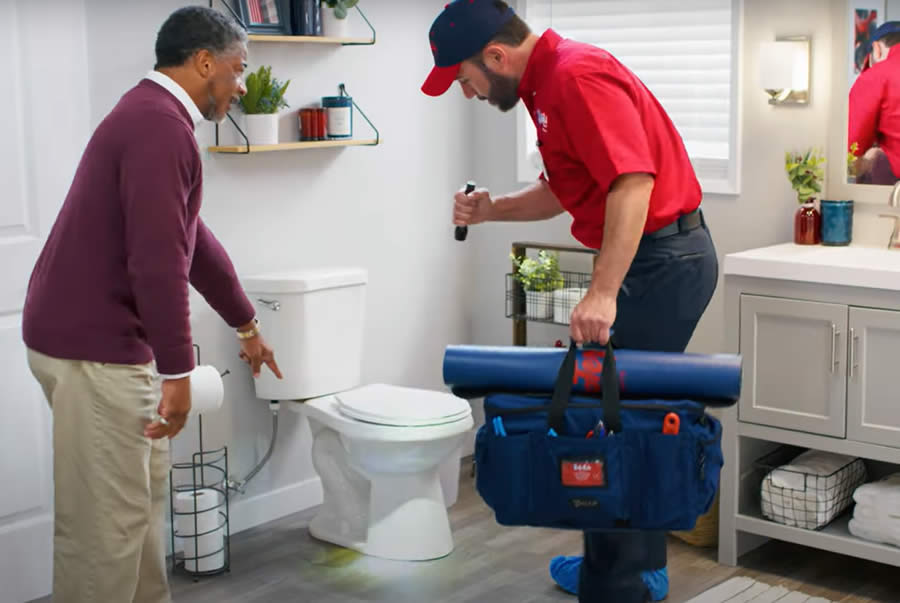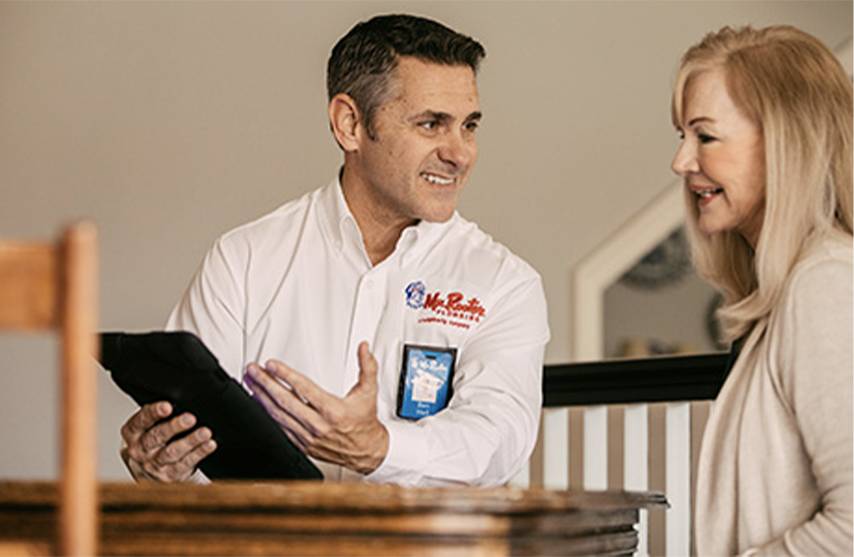
A sudden rush of water in your home understandably causes a lot of panic. Whether it’s a burst pipe under the sink or a hidden line giving way inside the wall, water can spread quickly and cause a lot of damage within minutes. The faster you respond, the better your chances of avoiding expensive repairs. Mr. Rooter Plumbing understands how quickly these situations can escalate, and we know what steps make the biggest difference. This guide will walk you through a few emergency plumbing tips to help protect your home and belongings when a leak happens.
Every homeowner should know the location of their main water shut-off valve before an emergency happens. In most houses, it is either in the basement, near the water heater, or outside by the meter. If you live in an apartment or condo, find out where your building’s shut-off is and how to access it. Turn the valve clockwise until it stops. This halts the water supply and buys you time to focus on the situation. If you’ve got a smaller leak from a faucet, you can sometimes shut off the local valve near the fixture to avoid cutting water to the entire home. Once the water is off, open faucets in the lowest point of your home to drain the remaining water from the pipes. This reduces pressure and limits additional leakage. It’s also a good idea to keep a wrench or shut-off tool stored in an accessible spot. In a real emergency, fumbling to find tools can waste valuable minutes.
Water and electricity are a dangerous combination. If water has pooled near outlets, appliances, or your breaker panel, turn off the power in that area as quickly as you can. This may require switching off the main breaker until you can confirm it is safe. Do not step into standing water if there is a chance it is in contact with live electricity. In this case, your first step should be to cut power from a dry location or leave the property and call for professional help. Safety comes before stopping damage. If gas appliances are in the affected area, be aware that leaks can also impact ventilation and pilot lights. If you smell gas or suspect an issue, leave the building and contact your utility company. These steps may feel extreme, but acting quickly reduces the risk of fire, electric shock, or injury.
Once you've shut off the water and secured the area, your goal is to keep water from spreading. Use some buckets or large bowls to collect dripping water. Lay down towels or waterproof sheeting to protect floors and furniture. If the leak is coming from a ceiling, create a small hole in the sagging area to allow water to drain into a container. This could help prevent a bigger collapse. If you can see the source, you can try to wrap it with plumber’s tape or a piece of rubber secured with a clamp as a temporary fix. It won’t hold permanently, but it can slow the water long enough for a professional to arrive. In multi-level homes, check each floor for signs of water travel. Gravity pulls water down quickly, so a second-floor leak can affect ceilings, walls, and floors below. Move valuables, electronics, and important documents to a dry location right away.

Even if you have slowed the leak, permanent repairs require help from an experienced plumber. They can find the root cause, replace damaged parts, and make sure the repair meets safety standards. If you suspect water is hidden inside walls or floors, a professional can perform leak detection to find the problem before it causes mold or structural damage. Remove as much water as you can while you're waiting for help. Use a wet-dry vacuum and mops to collect standing water. Run fans to increase airflow, and open windows if the weather allows. Dehumidifiers are helpful for reducing moisture that can cause long-term issues. Clean water can become contaminated after sitting for several hours, so fast cleanup helps avoid additional damage and health risks. Take photos to document everything for insurance purposes before discarding damaged items.
Some plumbing issues are inconvenient but do not require intervention right away. Others can cause thousands of dollars in damage if left alone for a single hour. Burst pipes, sewer backups, water heater failures, and leaks that threaten electrical systems all qualify as emergency plumbing situations. If water is spreading uncontrollably, seeping into multiple rooms, or coming into contact with wiring or structural components, treat it as an emergency. A rapid response limits repair costs and preserves your home’s safety. Keep an eye out for less obvious signs that a major problem is brewing. A sudden drop in water pressure, unexplained damp spots, or the sound of running water in walls can indicate a hidden leak. Scheduling routine inspections and leak detection services can help catch problems before they turn into disasters.
If you’re dealing with a leak now or want to prepare for the unexpected, call Mr. Rooter Plumbing. Our team is available for emergency plumbing services and is skilled in accurate leak detection in Hubbard, OH. We respond quickly, work efficiently, and leave your home safe and dry. From urgent repairs to preventive maintenance, we provide reliable care that keeps your plumbing system working. Contact us today to get help fast or to schedule your next service.